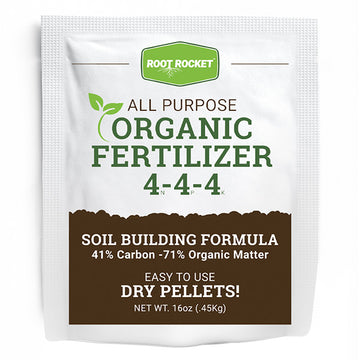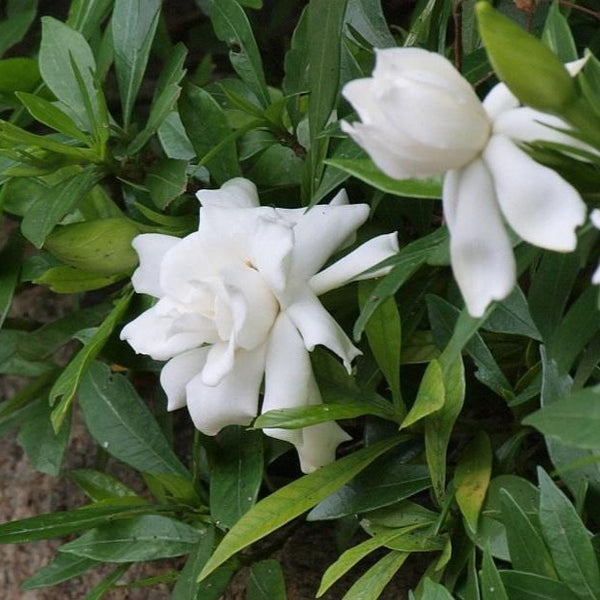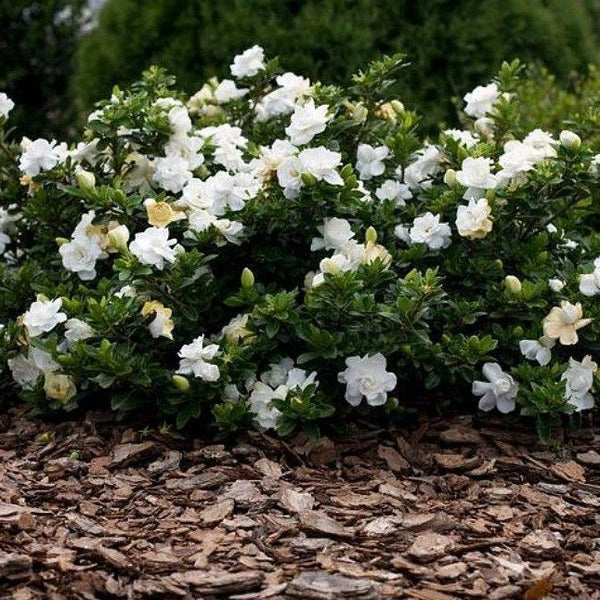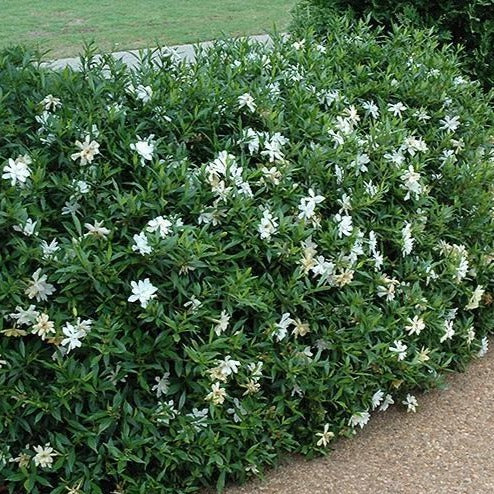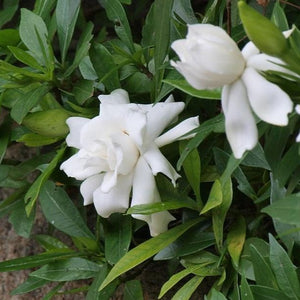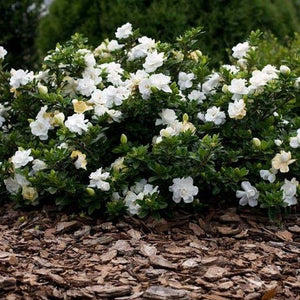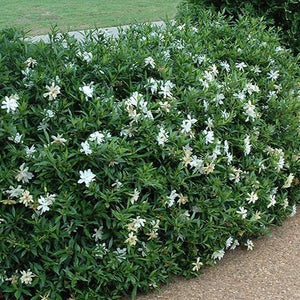Gardenia Radicans
Product Details
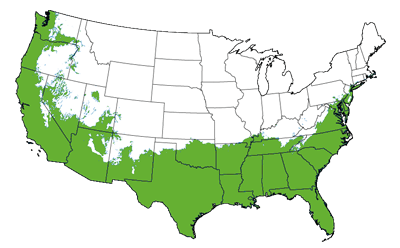 Growing Zones 7-10
Growing Zones 7-10
| Soil Type | Acidic, Well Drained |
| Sunlight | Full, Partial |
| Drought Tolerance | Good |
| Mature Height | 1-2 Feet |
| Mature Width | 2-3 Feet |
| Growth Rate | slow |
| Bloom Color | White |
| Shipping Restriction | AZ |
Stunning fragrant blooms emerge in late spring and rebloom throughout summer. These stunning white blooms pop over the shiny evergreen foliage. The Gardenia Radicans is an absolute beauty and a perfect compact size, only growing 1 to 2 feet tall and 3 feet wide.
This Gardenia will add a touch of romance and beauty to your landscape. Use the Gardenia Radicans as an accent, border, ground cover or a container plant.
Key Features
- Gorgeous scented blooms are a delight. Brighten your landscape with the Radicans Gardenia!
- Versatile in the landscape. The Radicans Gardenia makes a great border, foundation, ground cover, and accent shrub. It can even grow in part shade or full sun.
- Cooler zones can enjoy this beautiful flowering evergreen too by planting in containers and moving them inside during the winter.
- Gardenias are heat and drought tolerant plants that are low maintenance and disease resistant.
Pro Tip: Grow in zones 7b to 10 for best results. Gardenias do not tolerate extremely cold temperatures.
What Are Good Companion Plants?
Camellias and Azaleas.
How Far Apart Should These Gardenia Be Planted?
Space up to 3 ft apart when planting.
How Much Sun Does This Gardenia Need?
Thrives in full sun to part shade conditions.
When planting your Gardenia Radicans be sure you have the right location and conditions for your new plants to thrive. Spring and fall are ideal times to plant Gardenias. However, if you avoid freezing and extremely hot temperatures you can plant any time of the year.
Gardenias require full to part sun and prefer moist, well-drained, fertile, acidic soil. If you have alkaline soil, be sure to amend it. To acidify your soil amend with compost, elemental sulfur, or use fertilizers specific for acid loving plants. Mulching with pine straw or pine bark will help over time as they begin to break down, but this is not an immediate solution. To improve drainage in something like a heavy clay soil, add compost and be sure to loosen up the soil well before planting. Keep the soil moist, but not saturated, especially in summer and in the first year after planting. After the first year, it is best to allow the soil to begin to dry out in between waterings. In very dry and hot environments, misting your gardenia's leaves daily or every other day will keep your plant happy. Mulching at about 2 inches deep is highly recommended for gardenias. Mulching will cut back on watering needs and protect your plant in extreme temperatures. Fertilize once in spring with our 6 month slow release fertilizer. You don’t need to prune gardenias, but pruning after they are done blooming can help encourage bushier growth and renew an older plant. Remove dead or crowded branches any time. Avoid heavy pruning or pruning for shape anytime from fall until bloom as buds form in fall.
The best way to prevent disease and pests is by providing the appropriate care for your plants. Proper location choice, watering, and fertilization are the keys to your success. You can treat scale, whiteflies, and aphids naturally with neem oil or insecticidal soap. For severe infections you can use pesticides like carbaryl, also known as Sevin. The Gardenia Radicans is disease resistant so you aren't likely to encounter fungal issues with this variety.
Learn when to prune your flowering shrubs.
For additional options, be sure to browse our Gardenia collection.

